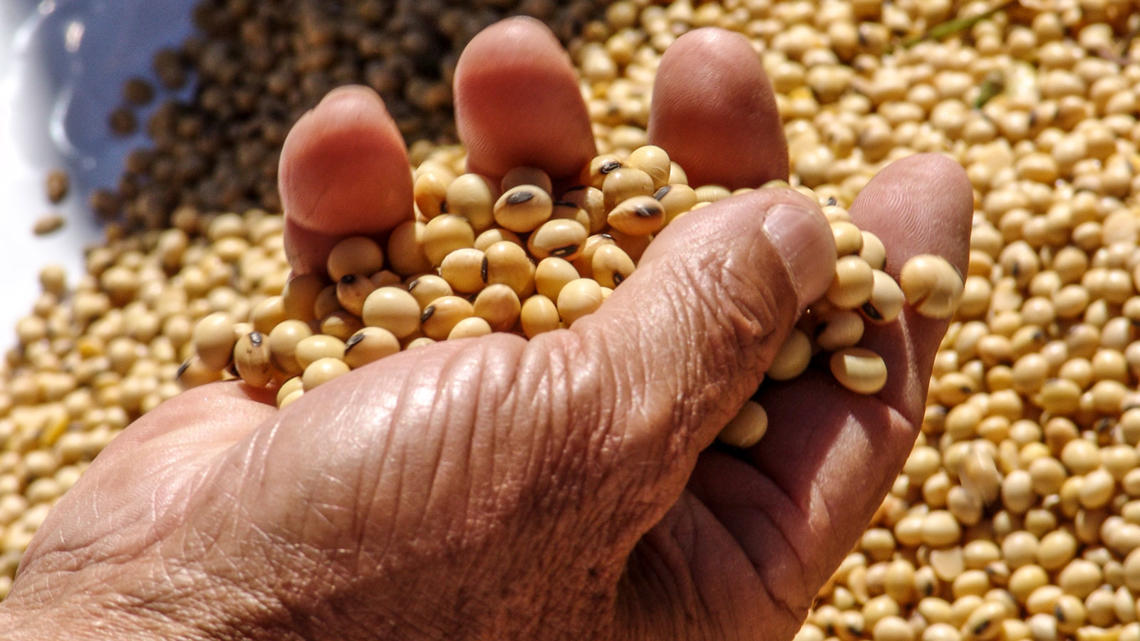- Report shows current level of members’ traceability to farm for direct sourcing in the SCF 25 priority municipalities in the Brazilian Cerrado
- By the end of 2020, the group commits to reaching full traceability to farm for their direct sourcing, with the goal to report at least 95% of soy volume as traceable by the end of 2020
- In 2020, the SCF will set up and support landscape-level initiatives in key priority areas to encourage the sustainable expansion of soy over suitable cleared areas
Geneva, 5 December 2019: Today, the Soft Commodities Forum (SCF), a group of six major global agribusinesses convened by the World Business Council for Sustainable Development (WBCSD) publishes its second report. The report details the joint progress made in the past six months, as well as the ambition and key priorities for 2020. The report was published with the support of SCF’s technical partner Proforest.
This latest report links to each SCF member’s data on the percentage of soy traceable to farm for their direct sourcing across the 25 priority municipalities selected in June for their relevance for SCF members and for soy production in the Cerrado. The report also outlines the SCF’s increased commitment to reach full traceability to farm in 2020. Traceability to farm is a critical success factor to identify possible land-use challenges and engage producers in ways to promote sustainable soy production. Going forward, the goal is to achieve full traceability to farm for direct sourcing by the end of 2020, with the goal to report at least 95% of soy volume as traceable by the end of 2020. When relevant, individual SCF members will continue traceability and supplier engagement for indirect sourcing, to minimize risks.
While essential to further the SCF goal to reduce and eventually eliminate native vegetation conversion in their soy supply chains, traceability is just one step in promoting sustainable soy production in the Cerrado.
The Cerrado is a crucially important biome to the world and to Brazil, both for the country’s role as an agricultural power-house and home to a significant proportion of global biodiversity’. The Cerrado hosts 44% of the country’s agricultural land and produces over 50% of Brazil’s soy, most of which is for export. Current global trade dynamics, as well as increasing demand for soy and animal protein driven by a larger and more affluent global population, are only likely to increase the pressure for agricultural production in the biome, bringing huge economic opportunities, as well as risks to one of the world’s most valuable (and vulnerable) habitats.
“As referenced in many recent reports there are over 20 million hectares of available clear land suitable for soy in the Cerrado, so sustainable soy production is a very tangible possibility which must be encouraged”, shared Diane Holdorf, Managing Director, Food & Nature at WBCSD. “The private sector has a key role to play in this by recognizing producers as part of the solution to re-balance the highly polarized narrative about environmental conservation in Brazil. WBCSD is encouraged by SCF’s progress to provide traceability in a very complex supply chain. Together, SCF members will help lead preservation of the Cerrado and beyond and promote positive and sustainable land use changes”.
In 2020, in addition to their traceability commitments within their own supply chains, SCF members will work together at landscape level – considering the relevant land-use demands and factors at play in a determined landscape – in the 25 priority municipalities identified in June. The objective is to engage producers, assess current practices and co-develop approaches that demonstrate that profitable soy production and environmental conservation are compatible. The SCF will focus on targeted interventions where risks are highest and where there are the greatest opportunities for sustainable expansion.
In the next 12 months, the SCF members will take actions to further their collective ambition and impact, but also help them achieve and scale their individual commitments. The goal is to achieve a future where soy production in the Cerrado is fully decoupled from the conversion of valuable natural habitats and where agriculture remains an important engine for growth without sacrificing nature.
You can access the full Soft Commodities Forum December 2019 progress report by clicking here. The first report published in June 2019 can be accessed here for further information.
Perspectives of SCF members
“Cargill’s progress toward eliminating deforestation in our supply chains is strengthened by our work with the Soft Commodities Forum”, said David MacLennan, Cargill Chairman and CEO. “The collective action of the industry and its leaders is critical to increasing supply chain transparency in the Brazilian Cerrado.”
“I am happy to see the collective progress by SCF members towards traceable and sustainable soy sourcing in Cerrado”, shared David Dong, CEO of COFCO International. “As we move to the next phase in 2020, I see great opportunity to leverage our collective role and further encourage sustainable soy production.”
Robert Coviello, SVP of Sustainability & Government Affairs, Bunge: “Our commitment to non-deforestation worldwide continues and we are pleased to see the progress achieved by SCF members. New metrics are being adopted and implemented, reflecting a shared vision of higher accountability and standards. As a leader in the industry, Bunge will leverage this framework to continue increasing traceability and transparency within its soybean supply chain.”
Ian McIntosh, CEO of Louis Dreyfus Company (LDC): “We are convinced that only through concerted effort – farmers, governments, companies, communities, etc. – can we meet the challenge of feeding a growing world population sustainably. The Soft Commodities Forum forms an integral part of those efforts, as we drive sustainability and traceability through our supply chains. It is encouraging that this second SCF report demonstrates collective progress in 25 priority municipalities in Brazil’s Cerrado and we look forward to further progress in 2020 and beyond.”


